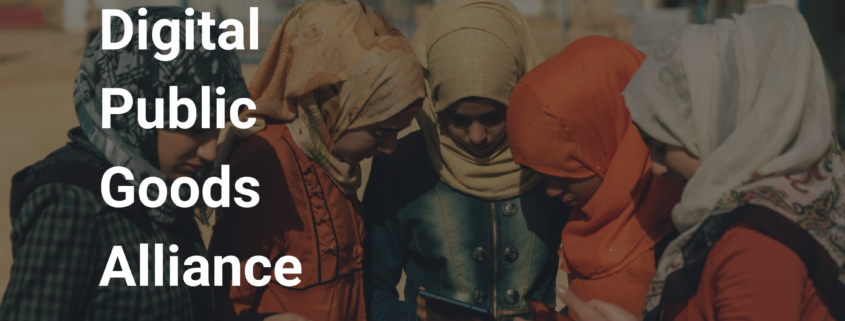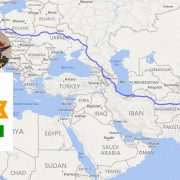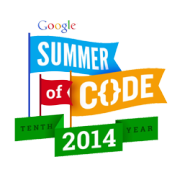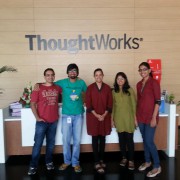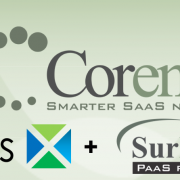Mifos and Fineract selected as UN Digital Public Goods
The Mifos and Fineract communities are honored to have Mifos and Fineract be nominated and selected as Digital Public Goods by the UN-supported Digital Public Goods Alliance (DPGA). Additionally, both Mifos and Fineract along with OpenG2P, Mojaloop, and MOSIP were selected as part of the 7 key projects by the DPG Alliance’s Financial Inclusion Community of Practice (CoP) to help advance the Secretary General’s digital cooperation roadmap to achieve greater financial inclusion and meet the sustainable development goals by 2030.
The DPGA convenes expert Communities of Practice (CoPs) to support the discovery, assessment and advancement of digital public goods with high potential for addressing critical development needs in low- and middle-income countries. The Financial Inclusion CoP spent the last few months identifying and shortlisting technologies that, in a given country, can be used by a range of service providers and innovators. These technologies can be built on across sectors and have features that can allow countries to freely adopt and iterate them to meet local needs.
The DPGA along with a growing international consensus has recognized digitization of public financing as a key driver of financial inclusion at scale with government payments estimated at $220-$320 billion annually by the IMF. The COVID-19 pandemic has heightened this need to equip governments with the ability to rapidly provide accounts and disburse payments to weather the economic impact of the health crisis.
Mifos and Fineract have long aimed to provide a common set of open source building blocks for composable financial services and are happy to see the sector recognize the need to reduce duplicative efforts and formally identify and make discoverable a set of Digital Public Goods and enable collaboration and innovation around them.This critical recognition and endorsement of Mifos and Fineract as these foundational digital public goods will help us in advocating for the adoption and deployment of Mifos for G2P scenarios as countries across the globe stabilize and rebound from the pandemic.
What are Digital Public Goods and Digital Public Infrastructure?
This Medium post from Liv Marte Nordhaug and supporting paper from the DPG Alliance explores the relationship between DPGs and DPIs as well as the rationale and criteria in selecting and assessing which digital public goods as part of the Financial Inclusion Community of Practice. From their post:
Digital public goods are defined by the UN Secretary-General’s Roadmap for Digital Cooperation as “open-source software, open data, open artificial intelligence models, open standards and open content that adhere to privacy and other applicable international and domestic laws, standards and best practices and do no harm.” Encompassing the UN’s shared goals, DPGs should also be relevant for attainment of the Sustainable Development Goals.
There is no similarly authoritative definition of DPIs, but they are often referred to as the rails that other solutions “run on top of” and their implementation typically enables many other solutions and business models to flourish. It is furthermore meaningful to divide them into foundational and functional categories, referring to the extent to which they are horizontal enablers.
The Digital Public Goods Alliance, incubated by Norway and The United Nations Children’s Fund (UNICEF), is a network of partners from different sectors who contribute to the identification, support and scale-up of digital public goods, and the software, data, content and algorithms that drive them, in order to advance humanity.
In addition to defining additional Communities of Practice, the DPGA is selecting a number of implementing countries as Pathfinder Countries to implement the DPGs, define use cases and needs, enable policy frameworks, and share lessons learned. Jordan has been identified as one of the first Pathfinder countries.
The current list of digital public goods can be found in the Registry at https://digitalpublicgoods.net/registry/.
Next Steps – End to End Implementations
Throughout 2020 we have been working to implement and demonstrate an end to end open source architecture for digital financial services and cash transfer systems as part of our ongoing development of the Payment Hub EE and integration with Mojaloop. Our lab environment currently showcases how interoperable payment transactions can freely flow across different systems by harnessing the capability of the Mifos/Fineract and Mojaloop Open APIs. Mifos/Fineract provides a foundational digital public good for open source account/wallet management and core banking while Mojaloop provides the foundational open source rail for interoperable payments. Next on our roadmap is to integrate a number of digital identity use cases into the lab environment by incorporating the open source MOSIP identity system and its APIs.
OpenG2P
This unified effort to connect Mifos, Mojaloop, and MOSIP for wallets, payments, and identity is part of our recently announced support in advancing OpenG2P. OpenG2P, was also recently recognized as a DPG and aims to build upon these open source building blocks by providing the additional glue and connective tissue to address the pervasive challenges around digitizing large-scale cash transfers and G2P payments around enrollment and validation of beneficiaries, bulk disbursement of payments, and recourse and follow-up to ensure payments have been received by the intended beneficiaries.
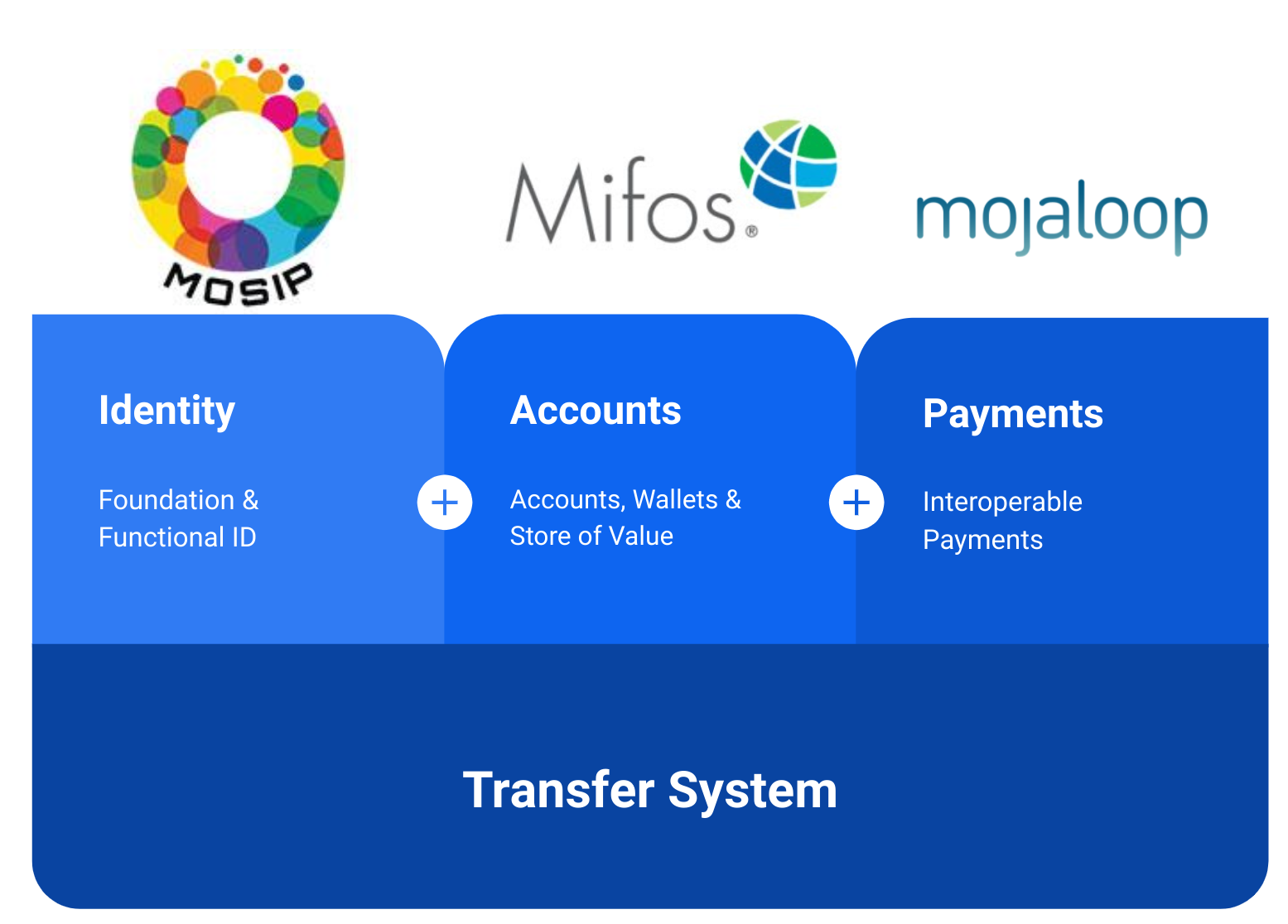
We would like to thank our friends and colleagues at DIAL (Digital Impact Alliance) for helping our projects get nominated as Digital Public Goods.
About the Digital Public Goods Alliance
The Digital Public Goods Alliance is a multi-stakeholder initiative to accelerate the attainment of the sustainable development goals in low- and middle-income countries by facilitating the discovery, development, use of, and investment in digital public goods.
About The Mifos Initiative
The Mifos Initiative is a FinTech non-profit leveraging the cloud, mobile & open source community to democratize financial services worldwide and digitally transform the world’s 3 billion poor and underbanked. For the past two decades, we have been an industry pioneer and thought leader launching groundbreaking open source core banking solutions helping the sector evolve. Mifos guides the open source community, steers the roadmap, and stewards the vibrant ecosystem of organizations building solutions on the Mifos and Fineract open platforms. More than 15 million customers are reached by 400+ fintechs and financial institutions across 41 countries powered by its open source banking APIs – https://mifos.org/impact/powered-by-mifos/.

